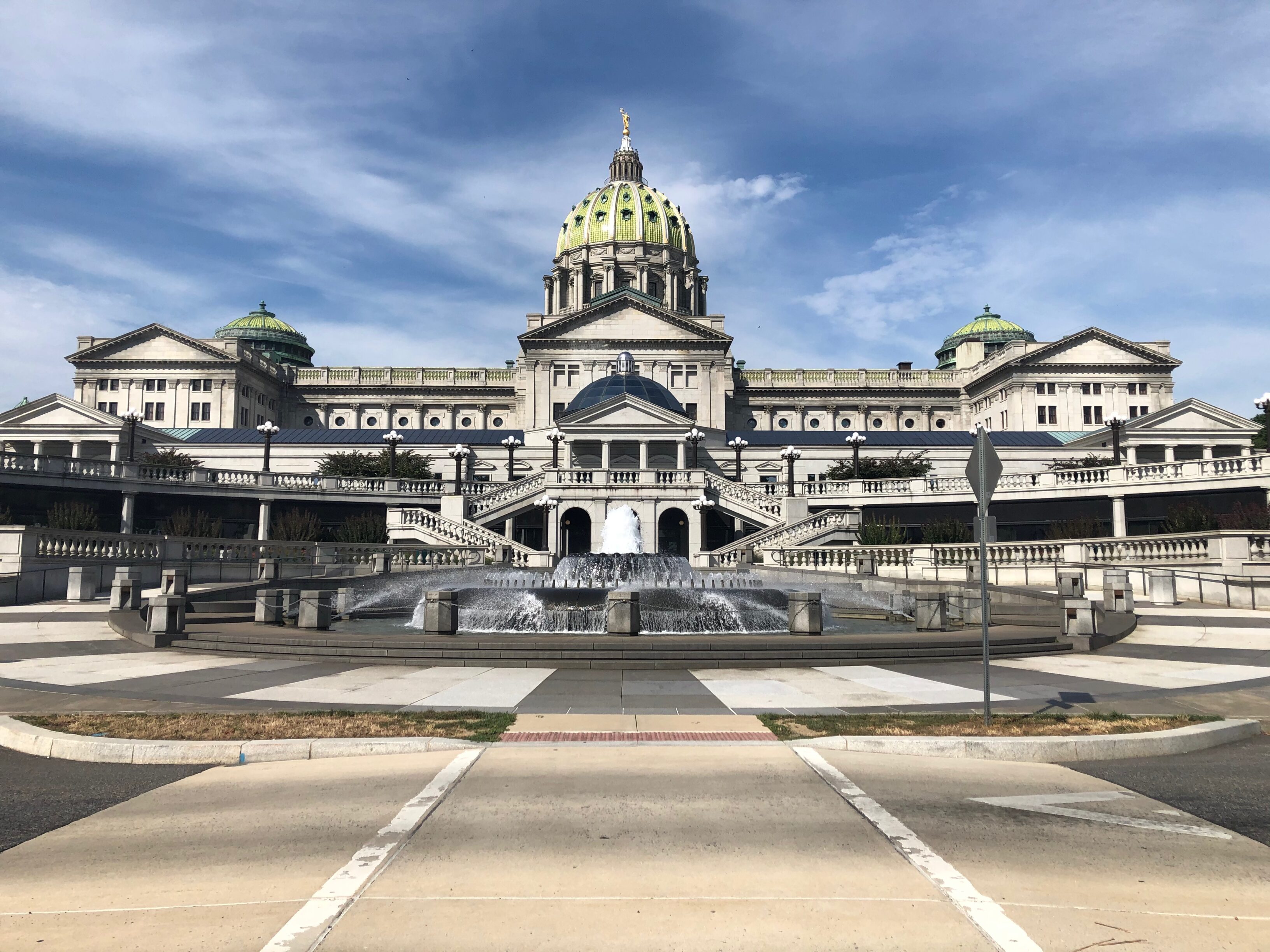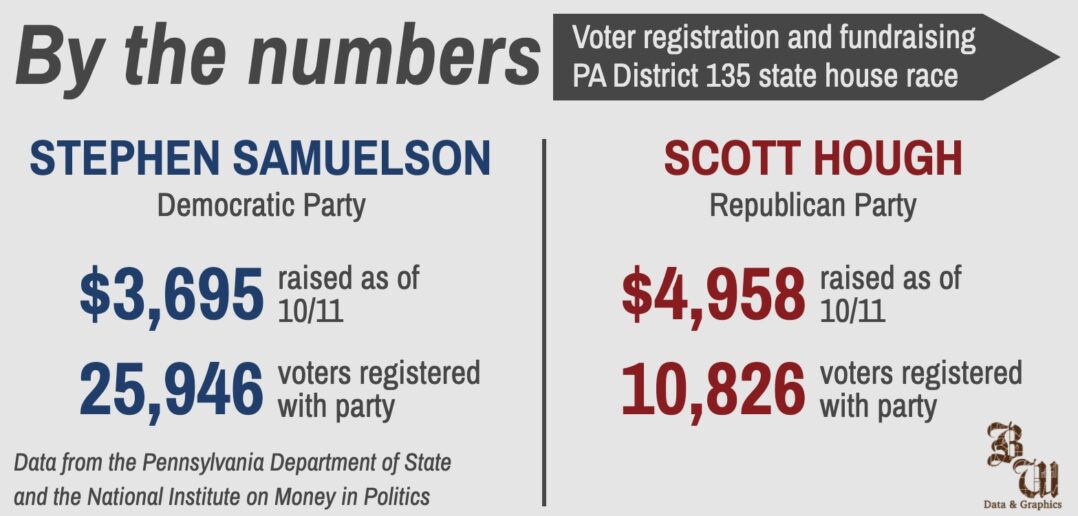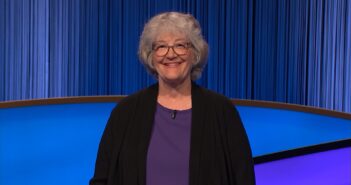For the first time since 2012, Bethlehem voters are going to have a choice over whom they want to represent them in Harrisburg.
This November, Democratic incumbent Rep. Steve Samuelson, ‘86 — a graduate of Liberty High School and a Lehigh University alum — is facing Scott Hough, his first Republican challenger in eight years. The winner will serve a two-year term to represent State House District 135, which includes the Northampton County portion of Bethlehem and Bethlehem Township, in the state Legislature. Lehigh University and the South Side fall within the district.

Courtesy of Rep. Steve Samuelson
Before the 2012 race, Samuelson hadn’t had a challenger since 2004. The National Institute on Money in Politics is reporting that Hough has raised about $1,300 more than Samuelson so far.
The district has about 2.5 times more registered Democratic voters than Republican voters, according to the Pennsylvania State Department.
But in Hough, who will be attempting to oust Samuelson after 21 years in office, voters find a candidate who is well-rooted in and well-connected to the Bethlehem community.
Hough grew up on East 5th Street on the South Side before moving to the North Side with his single mother later on in childhood. Hough attended Bethlehem Catholic High School and went on to study criminal justice at DeSales University. His mom worked at Lehigh, and he even drove the late-night TRACS van picking up and dropping off Mountain Hawk students at locations around campus for extra income on nights and weekends.
He is married and still lives on the North Side with his family. Hough is a former security director at the ArtsQuest facilities on the South Side and the PPL Center in Allentown before he accepted a job as a venue security director for an entertainment company in New York City, where he is currently on furlough. Hough’s grandfather is also a former employee at Bethlehem Steel, working in Martin Tower.
Hough said he never envisioned running for public office.
“I decided last year that Bethlehem needed a fresh perspective on things in Harrisburg,” he said. “I felt it was important to give the people of Bethlehem an opportunity to have some diversity in government.”

Courtesy of Scott Hough
Chris Borick, director of the Muhlenberg College Institute of Public Opinion, said the race doesn’t have the typical “conditions” required for a political upset of this kind. Buoyed by Samuelson’s incumbency, strong advantages in voter registrations and the lack of a “wave election” favoring a Republican challenger, Borick said there are “significant challenges” for Hough to come away victorious.
“I don’t see this as a likely flip district for the Republicans,” Borick said. “That doesn’t mean it’s impossible.”
Borick said there’s still an opportunity for someone like Hough to “get some buy-in” from voters.
Enough to flip the seat?
“Unlikely,” Borick said. “Incumbents dominate.”
A government major at Lehigh and a two-year reporter for The Brown and White, Samuelson started out in journalism. He worked for four years at The Globe Times — what would become the Express-Times in 1989 — before switching directions to government. Samuelson served as a legislative aide for the Lehigh County Commissioners from 1989 to 1998.
Samuelson said he got his interest in government from a book his parents bought him when he was in second grade about the U.S. presidents. In 1999, he ran and won the race for state representative at age 38. He hasn’t looked back since.
“I welcome the competition,” Samuelson said. “I’ve always run a positive campaign about what I’ve tried to do for the community and my own contributions. Focus on the positive.”
Hough, however, has taken a different approach. While he said he has been out with his small campaign team knocking on “thousands” of doors since August, Hough’s campaign is also currently circulating a flier hitting Samuelson on his record.
The flier notes Samuelson’s record during the pandemic, highlighting his votes to oppose ending Democratic Gov. Tom Wolf’s emergency declaration and his vote to oppose allowing restaurants and bars to open with outdoor dining, among others.
Samuelson, though, said there is more to be done to defeat the coronavirus.
“Gov. Wolf, I believe, has done a good job of slowing the spread in Pennsylvania,” he said. “Having said that, we have challenges to date. It’s still a public health threat.”
And in a controversial decision, Samuelson originally voted for a bill that would allow school districts to set their own crowd size limits for youth sports events during the pandemic — before flipping to oppose the bill after Wolf vetoed it.
“We’re trying our best to work with our school districts,” Samuelson explained. “The governor has also tried to work with the school districts to make decisions on education, whether you want to have hybrid learning, online learning or in-person. The bill that came up, however, would take away the governor’s authority and the Department of Health’s authority (to regulate crowd sizes).”
Hough, however, has different ideas for how the state should handle the virus and its reopening plan.
He said his main focus when it comes to the pandemic is returning “individual responsibility” to the state’s citizens.
“Individuals need to first and foremost make decisions on their lives that are best for them,” Hough said. “I support people who want to wear masks. I support people that don’t want to wear masks. You have that option.”
He specifically targeted “arbitrary mandates” — though he admitted restrictions likely contributed to the original decline in cases since the spring.
“You can have outdoor dining, but you can’t sit inside,” Hough said. “But you can go to Walmart with 1,000 people and stand in line and it’s OK there. And then if you order pizza with a beer, it’s OK, but if you don’t order pizza with your beer, it’s not OK. It almost seems, let’s roll the dice and whatever comes out today, comes out today.”
Over the weekend, Pennsylvania saw its highest daily case count in months. Hospitalizations have also increased.
“I am for the safe reopening of the economy — and quickly,” Hough said. “Drug abuse numbers are up. Suicide numbers are up. And nobody’s accounting for that.”
But there are other issues on the ballot, too.
Samuelson has taken strong interest in the issue of gerrymandering and has advocated for an independent commission to draw Pennsylvania’s legislative districts. He is the lead sponsor on House Bill 23, which was introduced in April 2019, to create such an independent redistricting commission. And he said he would “absolutely” be open to redistricting his own heavily-Democratic district if need be.
Samuelson worked closely with Rep. Thomas Murt (R-Montgomery) to draft the bill, which has not been brought to a vote in either the Republican-led committee or the House floor. The bill has over 80 co-sponsors.
“I’m very proud that this bill has bipartisan support,” Samuelson said. “You have to work together in the Legislature. I wish the Republican majority would bring up the bill for a vote because I think it would pass.”

The Pennsylvania State Capitol in Harrisburg on July 30, 2020. (Jordan Wolman/B&W Staff)
Samuelson’s other priorities include advocating for more education funding and supporting the environment. The lawmaker supports Wolf’s efforts to enter Pennsylvania into the Regional Greenhouse Gas Initiative in 2022, which aims to tax carbon emissions from electricity-generating power plants, reward greener energy production and cut pollution in the state.
Every other Northeast state has entered into the pact, but critics — who exist both on the Republican and Democratic sides in the Legislature — say the program would cost jobs in Pennsylvania and should not be done through executive order as Wolf has tried to do. Samuelson received a 100 percent rating from the environmental advocacy group Sierra Club for the current legislative session.
“I believe the environmental community and the labor community should work together going forward,” Samuelson said. “Green energy jobs can have a significant economic impact over the years.”
Hough said he has not taken a position on the Regional Greenhouse Gas Initiative.
He’s focused on issues like taxes, supporting first responders and addressing the opioid crisis. Hough wants to reduce school district property taxes in favor of an increased sales tax for consumers in the state. He believes the transfer would benefit seniors and younger people to be able to live affordably in the Lehigh Valley.
Under Hough’s tax plan, he says people who “spend more will pay more” while also capitalizing on revenue from those who enter Pennsylvania from neighboring states — especially at events like Bethlehem’s own Musikfest.
“We need to capture that,” Hough said.
In general, Hough also said he’s “not a fan of income taxes” and wants to push for “revenue-neutral increases and decreases” to maintain services and keep things affordable for lower-income residents.
Hough said he’s not in favor of further legalizing drugs like marijauana and others. He said doing so would be “a slippery slope” and instead calls for “more discussion” on the penalties and mandatory minimum sentences related to drugs.
“I know my positions are not going to go well with all of my colleagues both Republican and Democrat,” Hough said. “But you know what? A conversation is moving forward. And that’s what we need to do.”
As for the broader battle for control of Harrisburg, Borick said he would be “surprised” if Democrats were able to take control of either chamber of the Legislature. Democrats would need to flip nine House seats and four Senate seats to win the majority in the respective chambers. While Democrats rule in Bethlehem, Republicans have controlled the state’s General Assembly since 2011.
“I don’t see this as a likely flip district for the Republicans. That doesn’t mean it’s impossible.”
-Chris Borick, director of the Muhlenberg College Institute of Public Opinion
Down-ballot races like contests for the state House and Senate don’t get much attention, but Borick said the daily impact of the decisions made at the state, county and local level are “enormous” — from schools to public health policy to who gets to control the process for drawing legislative borders in 2021.
“I think we just perpetually undervalue (local elections),” Borick said. “That often leads to lower engagement. I think in the long-term that’s problematic.”
With less than one month before Election Day, Hough said he knows he’s in an “uphill” battle against a 21-year incumbent and a city characterized by all-Democratic leadership at the city council and mayor’s office.
“The numbers obviously are very much against me when you look at the voter registration numbers,” Hough said. “But the message is well-received. I’ll sit down and have a conversation with anybody.”
Sometimes, though, he recognizes his party label can “absolutely” hurt him among Bethlehem voters.
“I get questions from people, ‘Do you support the president?’ And my answer is that I’m running for state office,” Hough said. “You’re not going to call the president when you need help with whatever. Let’s bring it down to the level where we’re at here. That Republican next to my name, does it hurt me sometimes? I think it absolutely does. Because we get people who slam the door in our face and don’t even want to have a conversation.”
Through his canvassing, however, Hough said he has met people and businesses who tell him he’s the first politician to approach them in years — and that even if they don’t pledge to vote for him, they’re able to have a conversation and reach an understanding.
Samuelson said even with many of his campaign events held virtually, the election season is an “exciting” time for the community, and he is relying on his record of past community engagement to win re-election.
“I’m hopeful that we’ll have a very large voter turnout,” he said. “We have a precious right to vote, and I hope everyone exercises that right.”






Comment policy
Comments posted to The Brown and White website are reviewed by a moderator before being approved. Incendiary speech or harassing language, including comments targeted at individuals, may be deemed unacceptable and not published. Spam and other soliciting will also be declined.
The Brown and White also reserves the right to not publish entirely anonymous comments.